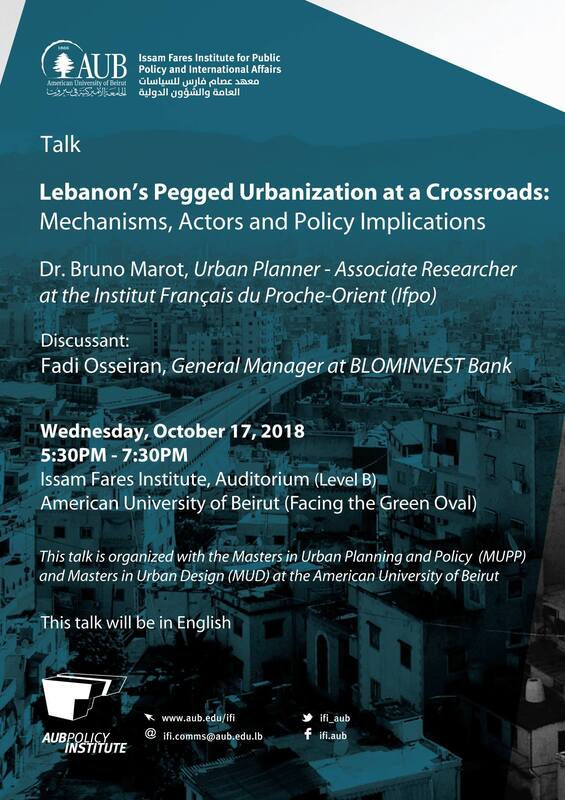|
Pegged urbanization is a distinctive feature of Lebanon’s rentier and finance-led version of capitalism. It is a state-sponsored model of financialized urban development that places the property market, through its financing channels, in the position of a peg that binds city-making to the country’s economic, financial and monetary stability. This talk aimed to explain why and how this is the case by revealing the main drivers, mechanisms and actors of the powerful finance-property link at play. It also explored two of its major and most topical policy implications: (i) the exacerbation of a protracted housing crisis and (ii) the risk of a property-generated financial disaster.
-- About Bruno Marot: Bruno Marot is a city planner and an associate researcher at the Institut Français du Proche-Orient (Ifpo). He holds a PhD in urban policy, planning and design from McGill University (2018) and two master’s degrees from Sciences Po – Paris (2011) and the Institut d’Urbanisme de Paris (2009). Bruno works now as an urban development consultant and is an occasional contributor to City, Jadaliyya, Le Commerce du Levant, La Revue Fiscale Libanaise and Executive Magazine. His doctoral research investigated Lebanon’s model of ‘pegged urbanization’ in which the property market is the anchor that pins city-making to the country’s economic, financial and monetary stability. His expertise and research interests generally include urban political economy, land and real estate economics, urban governance and housing provision. Comments are closed.
|
Archives
July 2024
|

